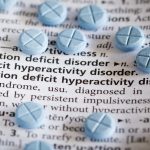Teens who use stimulant medication like Ritalin to treat attention-deficit/hyperactivity disorder (ADHD) do not have an increased risk of illicit drug use later, a new study finds.
This study looked specifically at cocaine and methamphetamine use. High school seniors who used stimulant therapy were no more likely to use cocaine or methamphetamine as young adults (ages 19 to 24) than their peers who didn’t use stimulant therapy, the researchers found.
“These findings should be comforting to parents who have teenagers taking stimulants for ADHD, who worry that these medications may lead to use of illicit stimulants like cocaine or methamphetamine as their children enter young adulthood and become more independent,” lead researcher Sean Esteban McCabe said in a University of Michigan news release. He’s a professor of nursing and director of the Center for the Study of Drugs, Alcohol, Smoking and Health.
Some past research has tied ADHD to an increased risk for illicit drug use, so these findings should reassure concerned parents, the study team stressed.
However, the researchers also found that teens who misuse prescription stimulants were significantly more likely to use these illicit drugs as young adults. Moreover, the frequency of misuse matters.
About 20% of high school seniors who misused prescription stimulants like Ritalin (methylphenidate) or Adderall started using cocaine or methamphetamine in young adulthood. And 34% of teens who misused prescription stimulants 10 or more times used cocaine or methamphetamine as young adults.
This reinforces the importance of monitoring and safely storing stimulant medications, McCabe said. It also emphasizes the importance of screening teens for drug use, including using prescription stimulants on their own.
Data for this research came from the University of Michigan’s Monitoring the Future study, which measures drug and alcohol use and attitudes among teens nationwide. It included more than 5,000 high school seniors between 2005 and 2017.
Prescriptions for stimulant medications have greatly increased in the last two decades, the authors noted. They are the most commonly misused controlled substance among teens and young adults.
Also, overdose deaths related to stimulants have increased tenfold in the past decade, according to the U.S. Centers for Disease Control and Prevention.
“Those overdose deaths are driven primarily by illicit stimulants such as cocaine and methamphetamine, calling into question the role that prescription stimulants might play in the initiation of illicit stimulants,” McCabe said. “We were interested in studying this association so we can identify and address drug use before major problems develop.”
The study was supported by the U.S. National Institute on Drug Abuse and the U.S. Food and Drug Administration.
The study findings were published online July 11 in JAMA Network Open.
More information
The U.S. Centers for Disease Control and Prevention has more on ADHD.
SOURCE: University of Michigan, news release, July 11, 2023
Source: HealthDay
Copyright © 2026 HealthDay. All rights reserved.
















